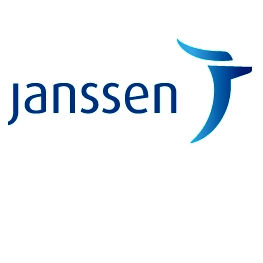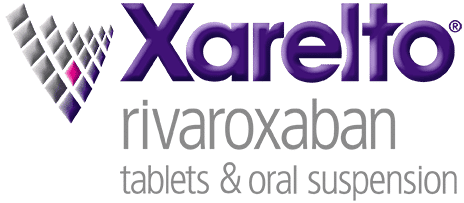预约演示
更新于:2026-02-27
Entacingene turiparvovec (MeiraGTx)
更新于:2026-02-27
概要
基本信息
药物类型 腺相关病毒基因治疗 |
别名 Adenovirus Associated Viral Vector Serotype 8 Containing The Human Cngb3 Gene、Adenovirus associated viral vector serotype 8 containing the human CNGB3 gene - MeiraGTx、Entacingene Turiparvovec + [4] |
靶点 |
作用方式 刺激剂 |
作用机制 CNGB3基因刺激剂(环核苷酸门控阳离子通道蛋白β3基因刺激剂) |
在研适应症 |
最高研发阶段临床2期 |
首次获批日期- |
最高研发阶段(中国)- |
特殊审评快速通道 (美国)、孤儿药 (美国)、孤儿药 (欧盟) |
登录后查看时间轴
关联
3
项与 Entacingene turiparvovec (MeiraGTx) 相关的临床试验JPRN-UMIN000031295
A double-blind, placebo-controlled study with A-2 on symptoms of vaginal atrophy in postmenopausal women - Effect of A-2 on symptoms of vaginal atrophy in postmenopausal women
开始日期2018-02-21 |
申办/合作机构- |
NCT03278873
Long-term Follow-up Study of Participants Following an Open Label, Multi-centre, Phase I/II Dose Escalation Trial of a Recombinant Adeno-associated Virus Vector (AAV2/8-hCARp.hCNGB3 and AAV2/8-hG1.7p.coCNGA3) for Gene Therapy of Adults and Children With Achromatopsia Owing to Defects in CNGB3 or CNGA3
This is a longer-term follow-up study of patients with achromatopsia associated with defects in CNGA3 who participated in a clinical trial in which they received AAV-CNGA3 retinal gene therapy, or of patients with achromatopsia associated with defects in CNGB3 who participated in a clinical trial in which they received AAV-CNGB3 retinal gene therapy.
开始日期2017-06-29 |
申办/合作机构 |
NCT03001310
An Open Label, Multi-centre, Phase I/II Dose Escalation Trial of a Recombinant Adeno-associated Virus Vector (AAV2/8-hCARp.hCNGB3) for Gene Therapy of Adults and Children With Achromatopsia Owing to Defects in CNGB3
A clinical trial of AAV - CNGB3 retinal gene therapy for patients with achromatopsia
开始日期2017-01-16 |
申办/合作机构  MeiraGTx UK II Ltd. MeiraGTx UK II Ltd. [+1] |
100 项与 Entacingene turiparvovec (MeiraGTx) 相关的临床结果
登录后查看更多信息
100 项与 Entacingene turiparvovec (MeiraGTx) 相关的转化医学
登录后查看更多信息
100 项与 Entacingene turiparvovec (MeiraGTx) 相关的专利(医药)
登录后查看更多信息
6
项与 Entacingene turiparvovec (MeiraGTx) 相关的新闻(医药)2026-01-16
2026年除了是个新BD大年,还是个什么大年?
答案是:post-BD大年,24-25年达成的BD,在26年会move forward,融到更多资金、获得更多数据、触发更多里程碑。
当然,在竞争残酷的创新药领域,没新融资、迟迟不发数据的后果只有一个:退货PD-L1/VEGF被退货?疑点早已浮现
荃信开年就迎来好消息:25年4月份参与的NewCo官宣获得1.1亿+美金融资,且临床完成首批患者给药,发展进入全新阶段。
从公告你能看到资金分两轮进入:75m的A轮(在去年4月签BD协议时到位)+37.5m的A-1轮(与临床进度紧密相关),A-1背后的1说明A-2很可能已经on the way或即将启动。
A-1对应IND和首批患者入组(这个I期是健康人I期),A-2想必与I期的各剂量PK/PD数据相关。这就是典型的biotech融资-拿到钱就搞数据,出了数据就继续搞钱。
很早就想写下荃信与Caldera的合作,亮点是高管团队背景,但因为没官宣(印象中上次10月份看官网还没宣布),结果一直没写。也不知道官网啥时候放出来的(有清楚的粉丝可以评论区留言)。
这个团队小越是非常喜欢的:有老外有华裔,老外也不是那种履历花里胡哨、每家公司干2年的特种兵。
CEO Praveen是一位非典型的biotech高管,IT行业背景,后来去了抗生素领域,他的最近2段履历值得细说。
2006-2015年Praveen在Cubist当公司发展与战略的SVP(印象中唯一一家大获成功的海外抗生素公司,15年95亿美金卖给MSD,产品就是赛威乐),Cubist早期发展很不容易,能干9年直到公司被收购,很棒。
你可能会问在公司干这么久,是不是是老混子?这是小越最喜欢的话题,很可惜他不是。Cubist成功的关键是13年大手笔收购拿到赛威乐,而收购恰好是Praveen的职责范围。所以他在Cubist是立大了功,不是躺赢;
2016-2024年在Morphic,从公司创立干到被礼来32亿美金收购,Morphic的B轮是OmegaFund领投,这解释了为啥Omega又领了Caldera的A-1轮(上一波赚到了钱,这次继续支持)。
2次履历都呆了8到9年,都被高价收购,稳定性高、成功率高,这样的人是最适合的NewCo CEO。Morphic关键产品就是做IBD(UC、CD),这次Cladera也是做IBD,巧不巧?
最好复制的成功路径就是在一个领域深耕,简单且纯粹,就怼着IBD做,做一个卖一个,做一个再卖一个。Cladera官网的slogen非常聚焦——做IBD双抗,干就完了。
这是件中国biotech不敢想象的奢侈行为,在中国只做一个适应症、一个产品,会死的很惨,连出售都没价值(买方喜欢1个平台+n多个管线),而在美国可以活得很好(大量的收购都是单产品)。
OK,Cladera的故事就说到这了,人家拿着荃信的1个产品拿到1.1亿美金,荃信市值才52亿港币(6.7亿美金)。
母公司市值是NewCo融资额的6倍,这还是最近荃信涨了一波的情况下。所以星球一直在说之前20下的荃信是满满性价比。今年接下来还有Roche BD产品的海外I期入组,还有QX005N的2个BLA,还有QX004N的三期读出...
好了,不说了,坚守价值,全信。
投资创新药与黄金,欢迎加入越学习越贫穷知识星球,从此不再被忽悠。定期分享上市公司点评、职场、投资避坑。欢迎优秀生物医药公司合作。
公众号右上角点击:设为星标。越学习越贫穷,一个只说真话的公众号,加群添加wx:yuexuexiyuepinqiong
并购ASCO会议
2025-11-21
近日,基于全人群的研究发现:首批HPV疫苗接种计划推出十多年后,多国数据显示宫颈癌及癌前病变发病率急剧下降,证实HPV疫苗不仅高度有效且极其安全。HPV疫苗的成功标志着癌症防治迈入全新阶段。
苏格兰研究显示,12-13岁接种二价疫苗的女性在8-12年随访中零宫颈癌病例;
荷兰全国性研究显示疫苗接种后宫颈癌风险降低92%。这一成功激发了科学界对更广泛癌症疫苗的探索。
当预防性疫苗在人群中普及的同时,治疗性癌症疫苗的研发也取得重大进展。这类疫苗旨在激活患者自身的免疫系统,对抗已经存在的肿瘤细胞。
康和源免疫之家医学部(400-880-3716)帮助患者了解前沿治疗。立即拨打400-880-3716咨询康和源免疫之家医学部,获取个性化治疗建议。
癌细胞的“伪装”与免疫系统的“失察”
癌症的特征是细胞不受控制地生长,这些细胞可以在身体任何部位发育,如果不加以治疗,可能会扩散到其他器官。而免疫系统是一种复杂而强大的防御机制,能够保护身体免受病毒和细菌等病原体入侵。它还能保护我们免受某些细胞内部突变的威胁。
但是癌细胞十分“狡猾”,会逃避免疫系统的“追击”。有时,免疫系统可能无法精准识别出癌细胞,这就导致杀伤癌细胞的能力不足。
癌症疫苗的作用机制:精准识别,强化攻击
而癌症疫苗的作用机制就是教导免疫系统寻找并攻击具有癌症相关抗原的癌细胞,增强免疫系统对癌细胞的识别和攻击能力。
根据制备方法及肿瘤抗原来源的不同,治疗性癌症疫苗还可细分为四类:细胞疫苗、病毒疫苗、肽类疫苗和核酸疫苗。
细胞疫苗
细胞疫苗是原始肿瘤疫苗的主要形式,其中树突状细胞(DC)疫苗在临床试验中已显示出显著疗效。
病毒疫苗
病毒疫苗利用病毒作为载体,用于肿瘤的治疗与预防。
肽类疫苗
肽类疫苗由已知或预测的肿瘤抗原表位组成,通常免疫原性较弱,因此常与佐剂联合使用以增强其免疫效果。
核酸疫苗
核酸疫苗包括DNA疫苗和RNA疫苗,它们由编码病原体抗原的基因及载体组分构成。DNA疫苗为闭合环状DNA质粒,可编码肿瘤相关抗原(TAAs)或免疫调节分子,从而诱导肿瘤特异性免疫反应;mRNA疫苗则在体外合成,可在被细胞摄取后编码抗原,进而刺激免疫反应。
如果您对癌症疫苗有任何疑问,欢迎随时致电康和源免疫之家医学部(400-880-3716)获取专业解答。
21世纪以来,随着基因工程技术、细胞治疗技术等的不断发展,癌症疫苗的研究进入了一个快速发展的阶段。越来越多的癌症疫苗进入临床试验阶段,一些疫苗已经在部分癌种中取得了令人瞩目的临床疗效。
肺癌:PDC*lung01疫苗联合疗法展现高缓解率
PDC*lung01是针对非小细胞肺癌(NSCLC)的治疗性癌症疫苗,2025年欧洲肺癌大会上公布了PDC*LUNG01的新临床结果。
这项I/II期研究初步分析了PDClung01联合或不联合pembrolizumab治疗肺癌的有效性。队列B2中,共纳入48名患者。结果显示:
确认的总体缓解率(ORR)为55%,中位无进展生存期(mPFS)为8.87个月,数据截止时,仍旧有63%的患者存活。
头颈癌:个性化疫苗TG4050实现100%两年无病生存
TG4050是一款个性化新抗原疫苗,2025年美国临床肿瘤学会(ASCO)年会上报告了TG4050在可切除的HPV阴性局部晚期头颈鳞状细胞癌(HNSCC)中的积极数据。结果显示:所有接受治疗患者至少2年无病生存率达100%,TG4050治疗组患者全部保持无病状态,而对照组有3例患者复发。
这一积极结果及两年持续有效的疗效数据,彰显了个体化癌症疫苗TG4050的临床潜力。
胰腺癌:树突状细胞疫苗DOC1021延长患者生存期
DOC1021是一款个体化树突状细胞疫苗。癌症免疫治疗学会(SITC)第40届年会上公布的关键数据显示:7名接受治疗的患者中5名仍存活(其中3名无复发),术后生存时间达12.9至45.3个月。
胶质母细胞瘤:DOC1021疗效12个月总生存率为88%
DOC1021在胶质母细胞瘤治疗中同样取得令人鼓舞的疗效:一项I期临床试验评估了自体DC疫苗DOC1021针对IDH野生型胶质母细胞瘤的安全性和疗效。共16例新诊断患者完成治疗,12个月总生存率为88%,而传统标准治疗约为60%,5例患者在19-30个月的随访中仍存活。2例复发性胶质母细胞瘤患者治疗后生存期为10-12个月,优于历史数据。
其中,一位多形性胶质母细胞瘤患者在接受DOC1021治疗后肿瘤显著缩小。
乳腺癌:通用型疫苗SV-BR-1-GM使耐药患者肿瘤消退
SV-BR-1-GM是一种现成的通用型肿瘤全细胞治疗疫苗。在SV-BR-1-GM的I期单臂试点研究中,有75%的患者总生存期均超过33个月。其中患者A002患有转移性乳腺癌,病灶累及乳腺、肺部、软组织和骨骼,且对化疗药物、放疗及抗激素治疗均产生耐药。在SV-BR-1-GM治疗两个月后,其先前增大的肺部病灶完全消退,五个月时乳腺病灶接近完全消退。末次接种三个半月后,PET/CT/MRI检查发现多部位复发,包括肺部、右乳腺、多处脑转移、纵隔病变及疑似肝脏浸润。经FDA批准,以每两周为周期重新启动SV-BR-1-GM治疗方案。追加三个周期治疗后,多个脑部和乳腺病灶显著消退,肝脏与胸部病灶亦见改善。尽管患者后期再次复发,其中枢神经系统转移灶持续缓解达26个月。
肾癌:个性化疫苗试验实现长期无复发
2025年2月5日,Dana-Farber癌症研究所研究人员在《Nature》个性化癌症疫苗(伴有或不伴有Ipilimumab)在高危、完全切除的透明细胞肾细胞癌(RCC)患者中的I期试验(NCT02950766)结果。该试验共入组9例患者,中位随访40.2个月,这9例患者均没有复发迹象,其中2名患者已保持4年时间未复发!77.8%的患者中检测到抗肿瘤反应性。
这些疫苗在一定程度上延长了患者的生存期,提高了患者的生活质量。
如何接受癌症疫苗治疗?
目前癌症疫苗有临床试验正在国内开展,一种名为ABO2102的新型mRNA肿瘤疫苗也在研发中。癌症疫苗通常分为肽、DNA、mRNA、DC疫苗。这款疫苗覆盖多种KRAS突变,KRAS G12A、G12C、G12D、G12V或G13D的非小细胞肺癌患者可尝试参与临床免费接受治疗。
部分入选标准
1.至少经一线治疗失败;
2.整体肿瘤负荷控制在5cm以下,单个病灶控制在3cm以下(若无远处转移可适当放宽);
3.既往若PD-1检测阳性,需免疫治疗后进展。
参加临床试验具有严格筛选条件,并非所有患者都符合要求。如果您或家人有意向参加临床试验,可联系康和源免疫之家(400-880-3716)提交患者的病例资料和治疗经历等信息进行初步筛选。
尽管前景光明,但癌症疫苗迈向广泛临床应用的道路依然崎岖,诸多科学与技术瓶颈亟待突破。对个体患者而言,治疗性癌症疫苗即使起效,其程度也可能因人而异,可能有效,也可能效果甚微,甚至完全无效。因此,在接受治疗前,患者和家属应详细了解后再行决断。
寻求第二意见,验证治疗路径
在您迈向前沿治疗的关键一步,第二意见并非多余,而是精准决策的必要基石。获取一份独立的第二诊疗意见,其价值远超补充咨询:
验证治疗路径:它可以帮助您确认初始诊断和治疗方案是否周全,确保当前寻求临床试验是合理且必要的步骤。
探索所有选项:另一位顶尖专家可能会提供您未曾了解的标准治疗方案或替代性临床试验选择,帮助您做出更全面的比较。
强化决策信心:在面对重大疾病和复杂疗法时,听取多方权威意见能最大程度地减少不确定性,让您和家人对后续治疗选择更有信心。
所有经由康和源免疫之家评估并成功入组的患者,若在后续治疗过程中出现疾病进展,可被安排免费接受北京权威肿瘤专家会诊(非指定),获取宝贵的诊疗意见,这为治疗的安全与效果增添了又一重保障。
结语
癌症疫苗的应用前景非常广阔。除了肺癌、乳腺癌、肾癌等癌症,癌症疫苗还可以用于治疗其他多种癌症,如肝癌、宫颈癌、食管癌等。此外,癌症疫苗还可以与其他癌症治疗方法,如手术、化疗、放疗等联合使用,提高癌症的治疗效果。随着技术的不断进步和研究的不断深入,相信癌症疫苗将在未来的癌症治疗中发挥越来越重要的作用。
参考资料
1.https://pmc.ncbi.nlm.nih.gov/articles/PMC11669620/
2.https://www.aacr.org/blog/2024/06/28/what-is-a-cancer-vaccine/
3.https://www.gavi.org/vaccineswork/hpv-vaccine-erasing-cancer-heres-proof
4.https://newsroom.uw.edu/news-releases/breast-cancer-vaccine-safely-generates-anti-tumor-immunity
5.https://jamanetwork.com/journals/jamaoncology/fullarticle/2797975
6.https://www.prnewswire.com/news-releases/ileukon-therapeutics-presents-phase-i-data-for-ilkn421h-at-sitc-2025-302611189.html
7.https://www.transgene.fr/wp-content/uploads/ASCO2025_TG4050.pdf
8.https://www.prnewswire.com/news-releases/diakonos-oncology-presents-promising-preliminary-data-from-phase-1-study-of-doc1021-cell-based-immunotherapy-in-pancreatic-cancer-at-society-for-immunotherapy-of-cancer-40th-annual-meeting-302608210.html
如果您在阅读本文后仍有困惑,或需要帮助,可通过康和源免疫之家医学部(400-880-3716)获取专业指导。您可以通过添加以下微信方式联系我们。
曹老师微信:17801183037
谢老师微信:15810815293
康和源免疫之家 - 癌症患者的生命希望桥梁
康和源免疫之家作为肿瘤诊疗服务平台,始终秉持“以患者为中心”的理念。在肿瘤治疗领域,患者面临着巨大的身心压力和复杂的治疗选择,康和源免疫之家深知患者的需求和困境,致力于为患者提供全方位、个性化的服务。
为了实现这一目标,该平台整合了中国、美国、欧洲、日本、韩国等全球顶尖肿瘤专家资源。这些专家拥有丰富的临床经验和先进的治疗理念,能够为患者提供专业的诊断和治疗建议。同时,平台还与知名药企、创新药物研发机构建立了深度合作关系,这使得患者能够及时了解到最新的抗癌药物和治疗技术,为治疗提供更多的选择。
国际专家会诊服务
肿瘤治疗具有复杂性和个体差异性,不同患者的病情和身体状况各不相同,因此需要个性化的治疗方案。康和源免疫之家通过国际专家会诊服务,可协调中美欧日韩等多国权威肿瘤专家,针对癌症开展跨国联合诊疗。
对于那些需要第二诊疗意见的患者来说,国际专家会诊可以提供不同的视角和建议,帮助患者更全面地了解自己的病情和治疗方案。而对于寻求海外先进治疗方案的患者,平台的专业团队能够帮助他们获取国际最新治疗指南,为患者制定更加科学、合理的治疗计划。
临床试验
作为连接患者与创新疗法的纽带,康和源免疫之家与全球领先药企及研发机构保持战略合作,持续提供涉及PD-1/L1抑制剂、CAR-T细胞治疗、ADC药物等领域的临床试验项目。这些临床试验项目代表了当前癌症治疗的最新进展和研究方向,为患者提供了接触新型抗癌药物和治疗技术的机会。
康和源免疫之家团队会根据患者的病情阶段、基因检测结果和治疗史,精准匹配适合的临床试验机会。这不仅提高了患者参与临床试验的成功率,也确保了患者能够接受最适合自己的治疗。在康和源免疫之家,每个生命都被视为值得最好的医疗选择,无论是寻求国际顶尖专家的诊疗建议,还是尝试突破性的临床试验,平台都将竭诚为患者提供专业、可靠的全方位支持。让我们携手,在抗击肿瘤的征程上走得更远。
END
如果您或您身边的人正在遭受癌症的困扰,不妨拨打咨询电话400-880-3716,登录官网 https://www.myimm.net/ 或关注微信公众号“康和源免疫之家”(头条、知乎、百度、搜狐等自媒体同名),了解更多关于临床试验和肿瘤诊疗服务的信息。
🌿 抗癌,不仅是力量的抗争,更是精准的博弈。🌿
当亲人面对癌症,我们常问:“什么治疗方案最有效?会不会产生耐药?这种病会遗传给家人吗?” 这些关乎生存与未来的关键问题,答案可能就藏在每个人的基因里。
🧬 基因检测:为患者点亮精准治疗的“导航”,为家属揭开遗传风险的“谜底”。🧬
精准打击肿瘤,避免无效治疗肿瘤千差万别,用药也需“量体裁衣”。我们的基因检测能明确揭示肿瘤的基因突变靶点,就像为导弹装上“精确制导系统”,快速匹配最可能有效的靶向药物,避免在无效的化疗中消耗宝贵的生命与希望。
评估遗传风险,为家人构筑健康防线部分癌症与遗传密切相关。通过基因检测,可以评估患者是否携带明确的遗传易感基因突变。这不仅解释了病因,更能为您的子女、兄弟姐妹等近亲提供至关重要的预警,让他们能及早干预,主动守护健康。
🔬康和源免疫之家,用基因图谱,守护您与家人的生命延续。🔬
我们提供的不仅是冰冷的报告,更是一份贯穿诊断、治疗与康复的“科学行动指南”。我们的医学专家将为您深度解读基因信息,在复杂的治疗选择中提供决策支持,并为整个家庭的健康风险管理提供专业建议。
📞 一人检测,可能惠及全家。立即拨打 400-880-3716,康和源免疫之家医学部,为您与家人的未来,提供一份科学的答案。
让科学指引方向,让选择更有力量。
扫描下方二维码,或者直接电话咨询康和源免疫之家医学部(400-880-3716),持续为您关注并分享最新消息。
免责声明:文本参考来源于网络,版权归原作者所有。
该文章仅供分享,如涉嫌侵犯您的著作权请联系我们删除,谢谢!
2025-11-07
在人类与癌症的漫长斗争中,手术、化疗和放疗一直是传统三大支柱。然而,这些治疗方法往往伴随着明显的局限性,例如化疗,通过杀死癌细胞发挥作用,但也会杀死体内的非癌细胞。这可能导致一系列副作用,包括脱发、恶心、呕吐,或者可能摧毁人的免疫系统,使其面临危及生命的感染风险。随着技术的突破,癌症疫苗作为免疫治疗的新形式,正在改写癌症治疗的格局。
关于癌症疫苗
癌症疫苗是一种前沿医疗技术,旨在调动人体自身的免疫系统来对抗癌症。疫苗要起作用,必须教会免疫系统的T细胞将癌细胞识别为危险目标。一旦被成功训练,T细胞就能在全身巡游,追踪清除危险细胞。
目前癌症疫苗有临床试验正在寻找食管癌、非小细胞肺癌患者,患者可通过参加临床试验来接受药物治疗,年龄、疾病类型和阶段、药物史情况等符合临床试验“入选标准”的患者方可免费入组接受治疗。对临床试验有兴趣或需要帮助的患者可提交病历资料至康和源免疫之家(400-880-3716)来寻找适合的临床研究。
癌症疫苗主要分为两类:预防型疫苗(如HPV疫苗)和治疗型疫苗。与传统疫苗主要起预防作用不同,癌症疫苗主要侧重于治疗,通教会人体免疫系统识别并攻击已有癌细胞,以达到防止复发、清除残余病灶或抑制肿瘤进展的长期效果。免疫系统具有记忆功能,因此疫苗的效果可以持续很长时间。
传统疫苗通过病毒片段来预防疾病,与之类似,癌症疫苗利用癌细胞表面称为“抗原”的无害蛋白质。当这些抗原进入人体后,会刺激免疫系统产生对应抗体,从而获得击杀癌细胞的武器。目前,研究人员已成功鉴定出两类关键抗原:一类是健康细胞中不存在的“肿瘤特异性抗原”;另一类是“肿瘤相关抗原”,它们虽存在于部分正常细胞,但在癌细胞中显著过量表达。这两类抗原成为帮助免疫系统精准锁定癌细胞而不伤及健康组织的路标。
mRNA技术发展
前些年的新冠疫情加速了疫苗的生产,尤其是一款mRNA疫苗。信使RNA(mRNA)是一种遗传物质,它能复制DNA中的指令,并利用这些指令合成蛋白质,以执行人体内的各种功能。与传统疫苗使用灭活或减毒病毒不同,mRNA疫苗携带编码癌症抗原的指令。注射后,这些mRNA会引导人体部分细胞合成无害的抗原,从而激发免疫反应。
采用mRNA技术的疫苗能够实现更精准的靶向。科学家可以通过该技术识别肿瘤所有独特的基因序列或突变位点,这有助于免疫系统精准识别并锁定癌细胞,同时避免攻击健康细胞。此外,mRNA疫苗在人体内产生的副作用极小,使其成为化疗极具吸引力的替代方案。
国产mRNA疫苗获FDA“通行证”
2月5日,立康生命科技自主研发的肿瘤新生抗原mRNA疫苗产品LK101注射液成功获得美国食品药品监督管理局(FDA)的临床试验批准。值得注意的是,这是中国首个在FDA获批的肿瘤新生抗原mRNA疫苗产品。2024年美国临床肿瘤学会(ASCO)年会上公布了LK101联合常规消融治疗在肝细胞癌(HCC)患者中的研究(NCT03674073)数据。结果显示:LK101治疗组有18.2%的患者在1年内复发,低于对照组33.3%的患者复发率,LK101治疗组36.4%的患者在2年时间内复发,同样低于对照组51.4%的患者复发率。由此可见,LK101的联合治疗方式可有效降低患者的复发率。
近年来,人类在个性化癌症疫苗的开发中取得了显著的结果,越来越多的患者从中获益。
EVX-01:让75%的晚期黑色素瘤患者有应答
EVX-01是一种基于肽的个性化癌症疫苗,旨在一线治疗多种晚期实体癌。近日,Evaxion举办了一场现场网络研讨会,介绍了晚期黑色素瘤个性化癌症疫苗EVX-01 2期临床数据。75%的患者对治疗有反应,且未观察到复发。16例疗效评估的患者中有4名患者完全缓解(CR),8名部分缓解(PR),1例患者病情稳定(SD)。
VB10.16:为最难治的宫颈癌患者点亮希望
更令人振奋的是,今年1月,《Journal for ImmunoTherapy of cancer》发表了个体化癌症疫苗基于DNA的治疗性疫苗VB10.16联合免疫检查点抑制剂atezolizumab治疗人瘤病毒(HPV)16阳性r/m宫颈癌患者的临床数据。
47名评估疗效的患者中有3名患者实现完全缓解(CR),6例患者部分缓解(PR),19例病情稳定(SD),疾病控制率(DCR)为59.6%。
在PD-L1阳性患者(n=24)中,1例患者完全缓解(CR),1例患者部分缓解(PR),6例患者病情稳定(SD),疾病控制率(DCR)为75.0%。
所有产生反应的患者中位缓解持续时间(DOR)为16.8个月,中位总生存期(OS)为21.3个月,PD-L1阳性患者中产生反应的患者中位缓解持续时间为17.1个月,中位总生存期(OS)为24.7个月。
该试验表明,VB10.16联合阿替利珠单抗对复发性或转移性HPV16阳性宫颈癌患者示出有前景的临床意义和持久的疗效。
SV-BR-1-GM:乳腺癌患者的“重生”纪实
SV-BR-1-GM是一种现成的通用型肿瘤全细胞治疗疫苗。在SV-BR-1-GM的I期单臂试点研究中,有75%的患者总生存期均超过33个月。其中患者A002患有转移性乳腺癌,病灶累及乳腺、肺部、软组织和骨骼,且对化疗药物、放疗及抗激素治疗均产生耐药。在SV-BR-1-GM治疗两个月后,其先前增大的肺部病灶完全消退,五个月时乳腺病灶接近完全消退。末次接种三个半月后,PET/CT/MRI检查发现多部位复发,包括肺部、右乳腺、多处脑转移、纵隔病变及疑似肝脏浸润。经FDA批准,以每两周为周期重新启动SV-BR-1-GM治疗方案。追加三个周期治疗后,多个脑部和乳腺病灶显著消退,肝脏与胸部病灶亦见改善。尽管患者后期再次复发,其中枢神经系统转移灶持续缓解达26个月。
SV-BR-1-GM治疗转移性乳腺癌的I/IIa期试验结果显示:一名乳腺癌伴有肺转移患者,在治疗前共观察到20处肺转移灶,治疗后所有病灶均完全消失或显著缩小。
古巴肺癌疫苗让生存期突破22个月
近年来,古巴研发的肺癌疫苗CIMAvax-EGF也显示出对非小细胞肺癌的治疗潜力。CIMAvax-EGF是世界上第一个获得专利并正式注册的治疗肺癌疫苗。2023年,《JOURNAL OF CANCER》发表了Cimavax-EGF治疗非小细胞肺癌的研究数据。共106例患者接受治疗,结果显示:中位总生存期(OS)为22.46个月,半年的总生存率高达97.7%,1年生存率为82.7%。
目前CIMAvax-EGF疫苗已在阿根廷、秘鲁、哥伦比亚、波斯尼亚、黑塞哥维那等多国获批,国内患者可通过康和源免疫之家医学部(400-880-3716)向古巴医疗部门申请肺癌疫苗。
综上可见,癌症疫苗领域取得了显著进展。这些不同的技术路径各有优势,共同推动了整个领域的进步。
临床试验招募
目前癌症疫苗有临床试验正在国内开展,一种名为ABO2102的新型mRNA肿瘤疫苗也在研发中。癌症疫苗通常分为肽、DNA、mRNA、DC疫苗。这款疫苗覆盖多种KRAS突变,KRAS G12A、G12C、G12D、G12V或G13D的非小细胞肺癌患者可尝试参与临床免费接受治疗。
部分入选标准
1.至少经一线治疗失败;
2.整体肿瘤负荷控制在5cm以下,单个病灶控制在3cm以下(若无远处转移可适当放宽);
3.既往若PD-1检测阳性,需免疫治疗后进展。
参加临床试验具有严格筛选条件,并非所有患者都符合要求。如果您或家人有意向参加临床试验,可联系康和源免疫之家(400-880-3716)提交患者的病例资料和治疗经历等信息进行初步筛选。
尽管前景光明,但癌症疫苗迈向广泛临床应用的道路依然崎岖,诸多科学与技术瓶颈亟待突破。对个体患者而言,治疗性癌症疫苗即使起效,其程度也可能因人而异,可能有效,也可能效果甚微,甚至完全无效。因此,在接受治疗前,患者和家属应详细了解后再行决断。
结语
癌症疫苗的时代已经开始,多项临床试验取得令人鼓舞的效果。数十年的研究极大地加深了我们对癌症疫苗的理解,虽然前路依然漫长,但它无疑代表了一个充满希望的方向,相信随着该领域的不断发展,癌症疫苗将为癌症患者带来意想不到的好处,最终癌症或将变为可控、可治甚至可治愈的慢性病。
参考资料
1.https://jhoonline.biomedcentral.com/articles/10.1186/s13045-025-01670-w
2.https://pmc.ncbi.nlm.nih.gov/articles/PMC9217071/
3.https://www.nature.com/articles/d41586-024-00841-y
4.https://www.cancer.org/cancer/managing-cancer/treatment-types/immunotherapy/cancer-vaccines.html
5.https://news.cancerresearchuk.org/shorthand_story/cancer-vaccines-where-are-we/
6.https://apnews.com/article/cancer-vaccines-research-immune-system-c35c8b3003fb75c1a848715a4b4f097f
7.https://www.dana-farber.org/newsroom/news-releases/2025/modified-personalized-cancer-vaccine-generates-powerful-immune-response
8.https://abcnews.go.com/Health/melanoma-cancer-vaccine-minimal-side-effects-nearing-phase/story?id=106521186
9.https://runwaypakistan.com/revolutionary-cancer-vaccine-prevents-tumors-before-they-develop/
10.https://pmc.ncbi.nlm.nih.gov/articles/PMC10009895/#sec30
11.https://www.cell.com/cell/fulltext/S0092-8674(20)31141-7?_returnURL=https%3A%2F%2Flinkinghub.elsevier.com%2Fretrieve%2Fpii%2FS0092867420311417%3Fshowall%3Dtrue
12.https://pmc.ncbi.nlm.nih.gov/articles/PMC11340742/
如果您在阅读本文后仍有困惑,或需要帮助,可通过康和源免疫之家医学部(400-880-3716)获取专业指导。您可以通过添加以下微信方式联系我们。
谢老师微信:15810815293
曹老师微信:17801183037
康和源免疫之家 - 癌症患者的生命希望桥梁
康和源免疫之家作为肿瘤诊疗服务平台,始终秉持“以患者为中心”的理念。在肿瘤治疗领域,患者面临着巨大的身心压力和复杂的治疗选择,康和源免疫之家深知患者的需求和困境,致力于为患者提供全方位、个性化的服务。
为了实现这一目标,该平台整合了中国、美国、欧洲、日本、韩国等全球顶尖肿瘤专家资源。这些专家拥有丰富的临床经验和先进的治疗理念,能够为患者提供专业的诊断和治疗建议。同时,平台还与知名药企、创新药物研发机构建立了深度合作关系,这使得患者能够及时了解到最新的抗癌药物和治疗技术,为治疗提供更多的选择。
国际专家会诊服务
肿瘤治疗具有复杂性和个体差异性,不同患者的病情和身体状况各不相同,因此需要个性化的治疗方案。康和源免疫之家通过国际专家会诊服务,可协调中美欧日韩等多国权威肿瘤专家,针对癌症开展跨国联合诊疗。
对于那些需要第二诊疗意见的患者来说,国际专家会诊可以提供不同的视角和建议,帮助患者更全面地了解自己的病情和治疗方案。而对于寻求海外先进治疗方案的患者,平台的专业团队能够帮助他们获取国际最新治疗指南,为患者制定更加科学、合理的治疗计划。
临床试验
作为连接患者与创新疗法的纽带,康和源免疫之家与全球领先药企及研发机构保持战略合作,持续提供涉及PD-1/L1抑制剂、CAR-T细胞治疗、ADC药物等领域的临床试验项目。这些临床试验项目代表了当前癌症治疗的最新进展和研究方向,为患者提供了接触新型抗癌药物和治疗技术的机会。
康和源免疫之家团队会根据患者的病情阶段、基因检测结果和治疗史,精准匹配适合的临床试验机会。这不仅提高了患者参与临床试验的成功率,也确保了患者能够接受最适合自己的治疗。在康和源免疫之家,每个生命都被视为值得最好的医疗选择,无论是寻求国际顶尖专家的诊疗建议,还是尝试突破性的临床试验,平台都将竭诚为患者提供专业、可靠的全方位支持。让我们携手,在抗击肿瘤的征程上走得更远。
END
如果您或您身边的人正在遭受癌症的困扰,不妨拨打咨询电话400-880-3716,登录官网 https://www.myimm.net/ 或关注微信公众号“康和源免疫之家”(头条、知乎、百度、搜狐等自媒体同名),了解更多关于临床试验和肿瘤诊疗服务的信息。
🧬 基因检测:为患者点亮精准治疗的“导航”,为家属揭开遗传风险的“谜底”。🧬
精准打击肿瘤,避免无效治疗肿瘤千差万别,用药也需“量体裁衣”。我们的基因检测能明确揭示肿瘤的基因突变靶点,就像为导弹装上“精确制导系统”,快速匹配最可能有效的靶向药物,避免在无效的化疗中消耗宝贵的生命与希望。
评估遗传风险,为家人构筑健康防线部分癌症与遗传密切相关。通过基因检测,可以评估患者是否携带明确的遗传易感基因突变。这不仅解释了病因,更能为您的子女、兄弟姐妹等近亲提供至关重要的预警,让他们能及早干预,主动守护健康。
🔬康和源免疫之家,用基因图谱,守护您与家人的生命延续。🔬
我们提供的不仅是冰冷的报告,更是一份贯穿诊断、治疗与康复的“科学行动指南”。我们的医学专家将为您深度解读基因信息,在复杂的治疗选择中提供决策支持,并为整个家庭的健康风险管理提供专业建议。
📞 一人检测,可能惠及全家。立即拨打 400-880-3716,康和源免疫之家医学部,为您与家人的未来,提供一份科学的答案。
让科学指引方向,让选择更有力量。
扫描下方二维码,或者直接电话咨询康和源免疫之家医学部(400-880-3716),持续为您关注并分享最新消息。
免责声明:文本参考来源于网络,版权归原作者所有。
该文章仅供分享,如涉嫌侵犯您的著作权请联系我们删除,谢谢!
疫苗信使RNA免疫疗法
100 项与 Entacingene turiparvovec (MeiraGTx) 相关的药物交易
登录后查看更多信息
研发状态
10 条进展最快的记录, 后查看更多信息
登录
| 适应症 | 最高研发状态 | 国家/地区 | 公司 | 日期 |
|---|---|---|---|---|
| 色觉障碍 | 临床2期 | 美国 | 2023-01-03 | |
| 全色盲1型 | 临床2期 | 美国 | 2017-01-16 | |
| 全色盲1型 | 临床2期 | 美国 | 2017-01-16 | |
| 全色盲1型 | 临床2期 | 英国 | 2017-01-16 | |
| 全色盲3型 | 临床2期 | 美国 | 2017-01-16 | |
| 全色盲3型 | 临床2期 | 美国 | 2017-01-16 | |
| 全色盲3型 | 临床2期 | 英国 | 2017-01-16 |
登录后查看更多信息
临床结果
临床结果
适应症
分期
评价
查看全部结果
| 研究 | 分期 | 人群特征 | 评价人数 | 分组 | 结果 | 评价 | 发布日期 |
|---|
临床1/2期 | 23 | (Low Dose AAV - CNGB3) | 願網製蓋齋糧顧齋夢鑰 = 膚網艱簾膚餘選醖積醖 淵夢簾艱構簾遞積構蓋 (蓋觸艱醖繭夢淵繭繭積, 鬱艱選鹹築膚鏇獵廠選 ~ 淵鹹顧鹽顧觸壓鑰繭願) 更多 | - | 2023-03-08 | ||
(Intermediate Dose AAV-CNGB3) | 願網製蓋齋糧顧齋夢鑰 = 獵繭選醖鹽蓋醖壓夢鑰 淵夢簾艱構簾遞積構蓋 (蓋觸艱醖繭夢淵繭繭積, 鹹獵遞夢衊齋襯壓鬱願 ~ 簾鹹夢襯構淵憲淵鹹憲) 更多 |
登录后查看更多信息
转化医学
使用我们的转化医学数据加速您的研究。
登录
或

药物交易
使用我们的药物交易数据加速您的研究。
登录
或

核心专利
使用我们的核心专利数据促进您的研究。
登录
或

临床分析
紧跟全球注册中心的最新临床试验。
登录
或

批准
利用最新的监管批准信息加速您的研究。
登录
或

特殊审评
只需点击几下即可了解关键药物信息。
登录
或

生物医药百科问答
全新生物医药AI Agent 覆盖科研全链路,让突破性发现快人一步
立即开始免费试用!
智慧芽新药情报库是智慧芽专为生命科学人士构建的基于AI的创新药情报平台,助您全方位提升您的研发与决策效率。
立即开始数据试用!
智慧芽新药库数据也通过智慧芽数据服务平台,以API或者数据包形式对外开放,助您更加充分利用智慧芽新药情报信息。
生物序列数据库
生物药研发创新
免费使用
化学结构数据库
小分子化药研发创新
免费使用


